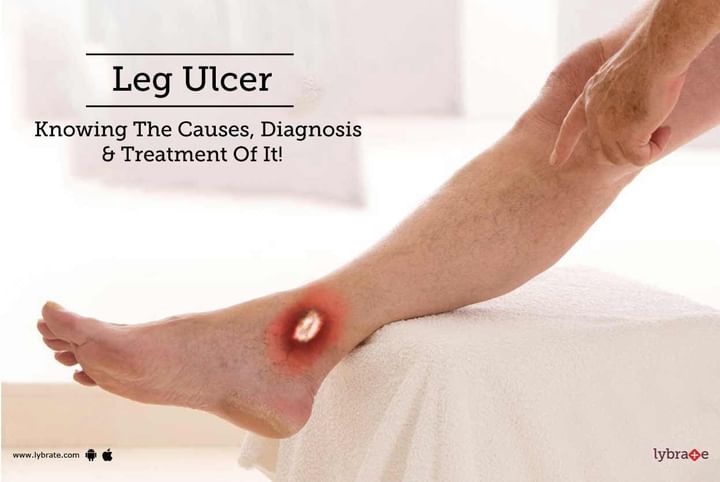Leg Ulcer - Knowing The Causes, Diagnosis & Treatment Of It!
What are leg ulcers?
Sometimes an injury, even a minor one can result in a break or rupture of the skin of the leg. This rupture allows air to reach the underlying tissues and muscles unhindered. Along with air, harmful bacteria too are exposed to the tissues. This causes an infection.
Usually, this broken skin and small infection heal by themselves in a few days. However, sometimes, because of some other medical conditions, the skin does not heal; in fact, the rupture becomes wider and sores begin to form. This is called a leg ulcer.
What causes leg ulcers?
The most common cause of leg ulcers is a problem with the veins of the legs. Malfunctioning veins are responsible for about 80% of all leg ulcers. When the veins in the injured site do not work, blood begins to pool there and this interrupts the flow of blood to the tissues and muscles. That means they stop receiving the oxygen and other nutrients that are needed to stay healthy. This ultimately leads to the formation of ulcers.
In rare cases, a problem of the arteries leads to leg ulcers. Sometimes leg ulcers can be triggered by other medical conditions like-
• Diabetes
• High blood pressure
• Heart ailments
• Kidney diseases
• High levels of cholesterol
• Varicose veins
How can you tell that your injury has deteriorated into an ulcer?
Leg ulcers are accompanied by certain symptoms-
• The injury keeps oozing pus
• It refuses to heal
• The wound area seems to expand
• The legs become swollen
Diagnosis of leg ulcers:
A doctor can usually diagnose leg ulcers simply through a physical examination. Sometimes she/he may recommend a CT scan, MRI scan, or an ultrasound test.
Treatment for leg ulcers:
It is important to seek treatment for leg ulcers because for relieving the intense pain and to stop them from recurring and to prevent further infections.
• Veins intervention: This is a non-invasive vascular procedure. The doctor first determines just how functional your veins are. If functionality is low, then you may have to undergo an endovenous ablation procedure where the doctor uses radiofrequency ablation or laser ablation to collapse the faulty vein with heat.
• Surgery for leg ulcers: surgery may be necessary if the ulcers do not respond to other non-invasive procedures. Generally, doctors advise a procedure called debridement. During this surgery, the surgeon removes the damaged tissues, bone fragments and remnants from dressings. When the area is cleaned, it triggers the production of new platelets and this prompts healing and growth of new tissues.
Leg ulcers can get infected and invite a host of other complications unless you seek treatment for it.



+1.svg)
